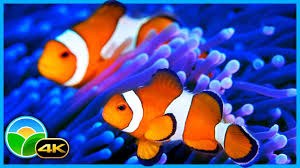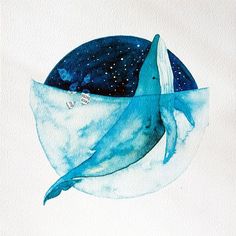DỊCH HOÀN THIỆN ĐỀ THI IELTS READING VÀ GIẢI THÍCH ĐÁP ÁN -
The Future of fish
The face of the ocean has changed completely since the first commercial fishers cast their nets and hooks over a thousand years ago. Fisheries intensified over the centuries, but even by the nineteenth century, it was still felt, justifiably, that the plentiful resources of the sea were for the most part beyond the reach of fishing, and so there was little need to restrict fishing or create protected areas. The twentieth century heralded an escalation in fishing intensity that is unprecedented in the history of the oceans, and modern fishing technologies leave fish no place to hide. Today, the only refuges from fishing are those we deliberately create. Unhappily, the sea trails far behind the land in terms of the area and the quality of protection given. ĐOẠN 1
Bộ mặt của biển cả đã hoàn toàn thay đổi kể từ những ngư dân đánh bắt cá thương mại đầu tiên quăng lưới và lưỡi câu của họ vào một ngàn năm về trước. Ngành công nghiệp cá đã tăng cường đánh bắt trong vài thế kỷ nhưng ngày cả vào thế kỷ 19, họ vẫn cảm thấy một cách chính đáng rằng nguồn tài nguyên biển dồi dào phần lớn nằm ngoài phạm vi đánh bắt cá và vì vậy không cần thiết hạn chế đánh bắt hoặc tạo lập những khu bảo vệ. Thế kỷ 20 đã báo trước sự leo thang về cường độ đánh bắt cá điều mà chưa từng thấy trong lịch sử đại dương, và các công nghệ đánh bắt cá hiện đại không để cho cá có nơi nào trú ẩn. Ngày nay, nơi trú ẩn khỏi bị đánh bắt duy nhất là nơi mà chúng ta cố tình tạo ra. Thật không may khi biển đi sau đất liền về mặt diện tích và chất lượng bảo vệ liên quan.
trail far behind: to walk or move slowly as one follows behind (someone or something)
For centuries, as fishing and commerce have expanded, we have held onto the notion that the sea is different from the land. We still view it as a place where people and nations should be free to come and go at will, as well as somewhere that should be free for us to exploit. Perhaps this is why we have been so reluctant to protect the sea. On land, protected areas have proliferated as human populations have grown. Here, compared to the sea, we have made greater headway in our struggle to maintain the richness and variety of wildlife and landscape. Twelve percent of the world’s land is now contained in protected areas, whereas the corresponding figure for the sea is but three-fifths of one percent. Worse still, most marine protected areas allow some fishing to continue. Areas off-limits to all exploitation cover something like one five-thousandth of the total area of the world’s seas. ĐOẠN 2
Trong nhiều thế kỷ, khi nghề cá và thương mại phát triển mở rộng, chúng ta nắm giữ quan niệm rằng biển khác biệt với đất liền. Chúng ta vẫn xem nó như một nơi mà mọi người và các quốc gia tự do đến và đi tùy ý cũng như là nơi nào đó mà chúng ta có thể tự do khai thác. Có lẽ đây là lý do tại sao chúng ta do dự bảo vệ biển. Trên đất liền, các khu vực bảo tồn tăng nhanh chóng khi dân số loài người tăng lên. Ở đây, so với biển, chúng ta đã tiến bộ hơn trong cuộc chiến duy trì sự phong phú và đa dạng của thiên nhiên hoang dã và cảnh quan. 12% diện tích đất trên thế giới hiện nay nằm trong các khu bảo tồn, trong khi con số tương ứng đối với biển chỉ mới 3/5%. Thậm chí còn tệ hơn, hầu hết các khu bảo tồn biển cho phép tiếp tục đánh bắt cá. Những khu vực bị cấm khai khác bao gồm khoảng 1/5000 tổng diện tích đại dương toàn thế giới.
but: chỉ, chỉ mới, chỉ là
off-limit ( adj): bị cấm
>>>>>Xem thêm:
♦ Tổng hợp câu trả lời, câu hỏi, từ vựng của hơn 70 chủ đề Ielts Speaking part 1
♦ Tổng hợp gần 400 đề thi Ielts reading ( bao gồm dịch, giải chi tiết, từ vựng)
Today, we are belatedly coming to realise that ‘natural refuges’ from fishing have played a critical role in sustaining fisheries, and maintaining healthy and diverse marine ecosystems. This does not mean that marine reserves can rebuild fisheries on their own - other management measures are also required for that. However, places that are off-limits to fishing constitute the last and most important part of our package of reform for fisheries management. They underpin and enhance all our other efforts. There are limits to protection though. ĐOẠN 3
Ngày nay, chúng ta muộn màng nhận ra rằng các khu trú ẩn tự nhiên không bị đánh bắt đóng vai trò quan trọng trong việc cứu sống ngành cá và duy trì hệ sinh thái biển đa dạng và khỏe mạnh. Điều này không có nghĩa là các khu bảo tồn đại dương có thể tự tái tạo các khu đánh bắt cá - các biện pháp quản lý khác cũng cần thiết cho việc đó. Tuy nhiên, những nơi bị cấm đánh bắt là phần cuối cùng nhưng quan trọng nhất trong gói cải cách cho công tác quản lý ngành cá. Chúng củng cố và cải thiện mọi nỗ lực khác của chúng ta. Mặc dù có những hạn chế đối với sự bảo tồn.
Reserves cannot bring back what has died out. We can never resurrect globally extinct species, and restoring locally extinct animals may require reintroductions from elsewhere, if natural dispersal from remaining populations is insufficient. We are also seeing, in cases such as northern cod in Canada, that fishing can shift marine ecosystems into different states, where different mixes of species prevail. In many cases, these species are less desirable, since the prime fishing targets have gone or are much reduced in numbers, and changes may be difficult to reverse, even with a complete moratorium on fishing. The Mediterranean sailed by Ulysses, the legendary king of ancient Greece, supported abundant monk seals, loggerhead turtles and porpoises. Their disappearance through hunting and overfishing has totally restructured food webs, and recovery is likely to be much harder to achieve than their destruction was. This means that the sooner we act to protect marine life, the more certain will be our success. ĐOẠN 4
To some people, creating marine reserves is an admission of failure. According to their logic, reserves should not be necessary if we have done our work properly in managing the uses we make of the sea. Many fisheries managers are still wedded to the idea that one day their models will work, and politicians will listen to their advice. Just give the approach time, and success will be theirs. How much time have we got? This approach has been tried and refined for the last 50 years. There have been few successes which to feather the managers’ caps, but a growing litany of failure. The Common Fisheries Policy, the European Union’s instrument for the management of fisheries and aquaculture, exemplifies the worst pitfalls: flawed models, flawed advice, watered-down recommendations from government bureaucrats and then the disregard of much of this advice by politicians. When it all went wrong, as it inevitably had to, Europe sent its boats to other countries in order to obtain fish for far less than they were actually worth. ĐOẠN 5

1. Mua bộ đề gần 400 bài ielts reading - Dịch và giải chi tiết Chỉ 199k bao gồm toàn bộ đề trong bộ Cambridge ( từ bộ 1 -19) và nhiều đề thi thực tế ( xem danh sách 400 đề ielts reading tại đây). Xem bài mẫu tại đây, Bài mẫu 1, bài mẫu 2, bài mẫu 3. Giải đề bao gồm phần dịch bài đọc, dịch phần câu hỏi, giải thích chi tiết, ( chỉ có thể tải, in phần đề để luyện tập, phần giải chi tiết và dịch chỉ xem online).
>>>> >>>> Đặc biệt tặng kèm Dịch và giải chi tiết bộ đề Ielts listening từ Cam 10-18 và tặng kèm hơn 300 đề Ielts thực tế ( không có lời giải chi tiết chỉ có đề và đáp án) ( khác với bộ 400 đề ở trên). Vui lòng điền thông tin theo form tại đây và thanh toán theo thông tin CK trong form.
2. Đặc biệt dành tặng 100 bạn hoàn thành buổi học thử miễn phí khóa học Ielts Speaking online 1 kèm 1, các bạn sẽ được tặng bộ đề 400k bài Ielts reading và bộ đề Ielts Listening bộ Cam từ 10-18 gồm bài dịch và giải chi tiết, giải thích từ vựng khó ( thời hạn sử dụng trong vòng 2 tháng). Xem thông tin khóa học Ielts Speaking online 1 kèm 1 và đăng ký học thử tại đây.
We are squandering the wealth of oceans. If we don’t break out of this cycle of failure, humanity will lose a key source of protein, and much more besides. Disrupting natural ecosystem processes, such as water purification, nutrient cycling, and carbon storage, could have ramifications for human life itself. We can go a long way to avoiding this catastrophic mistake with simple common sense management. Marine reserves lie at the heart of the reform. But they will not be sufficient if they are implemented only here and there to shore up the crumbling edifice of the ‘rational fisheries management’ envisioned by scientists in the 1940s and 1950s. They have to be placed centre stage as a fundamental underpinning for everything we do in the oceans. Reserves are a first resort, not a final resort when all else fails. ĐOẠN 6
Questions 27-31
Do the following statements agree with the views of the writer in Reading Passage 317?
In boxes 27-31 on your answer sheet, write -
YES if the statement agrees with the claims of the writer.
NO if the statement contradicts the claims of the writer.
NOT GIVEN if it is impossible to say what the writer thinks about this.
27. It is more than a thousand years since people started to catch fish for commercial use.
28. In general, open access to the oceans is still regarded as desirable.
29. Sea fishing is now completely banned in the majority of protected areas.
30. People should be encouraged to reduce the amount of fish they eat.
31. The re-introduction of certain mammals to the Mediterranean is a straightforward task.
Questions 32-34
Choose the correct letter, A, B, C or D and write them in boxes 32, 33 & 34 on your answer sheet.
32. What does the writer mean with the question, ‘How much time have we got?’ in the fifth paragraph?
A. Fisheries policies are currently based on uncertain estimates.
B. Accurate predictions will allow governments to plan properly.
C. Fisheries managers should provide clearer information.
D. Action to protect fish stocks is urgently needed.
33. What is the writer’s comment on the Common Fisheries Policy?
A. Measures that it advocated were hastily implemented.
B. Officials exaggerated some of its recommendations.
C. It was based on predictions which were inaccurate.
D. The policy makers acquired a good reputation.
34. What is the writer’s conclusion concerning the decline of marine resources?
A. The means of avoiding the worst outcomes needs to be prioritised.
B. Measures already taken to avoid a crisis are probably sufficient.
C. The situation is now so severe that there is no likely solution.
D. It is no longer clear which measures would be most effective.
Questions 35-40
Complete the summary using the list of words/phrases, A-J, below.
Measures to protect the oceans
Up till the twentieth century the world’s supply of fish was sufficient for its needs.
It was unnecessary to introduce 35 ................ of any kind, because large areas of the oceans were inaccessible.
However, as 36 ................ improved, this situation changed, and in the middle of the twentieth century, policies were introduced to regulate 37 .................
These policies have not succeeded. Today, by comparison with 38 ................ the oceans have very little legal protection.
Despite the doubts that many officials have about the concept of 39 ................, these should be at the heart of any action taken.
The consequences of further 40 ................ are very serious, and may even affect our continuing existence.
A. action
B. controls
C. failure
D. fish catches
E. fish processing
F. fishing techniques
G. large boats
H. marine reserves
I. the land
J. the past
ĐÁP ÁN, GIẢI CHI TIẾT và DỊCH HOÀN THIỆN ĐỀ THI IELTS READING:
The Future of fish
Questions 27-31
Do the following statements agree with the views of the writer in Reading Passage 317?
In boxes 27-31 on your answer sheet, write -
YES if the statement agrees with the claims of the writer.
NO if the statement contradicts the claims of the writer.
NOT GIVEN if it is impossible to say what the writer thinks about this.
27.T It is more than a thousand years since people started to catch fish for commercial use.
Mọi người đã bắt đầu đánh bắt cá vì mục đích thương mại trong hơn 1000 năm
Giải thích: đoạn 1
The face of the ocean has changed completely since the first commercial fishers cast their nets and hooks over a thousand years ago
28.T In general, open access to the oceans is still regarded as desirable.
Nhìn chung, quyền tiếp cận đại dương công khai vẫn được xem là đáng mong muốn
Giải thích: đoạn 2
We still view it as a place where people and nations should be free to come and go at will, as well as somewhere that should be free for us to exploit.
Questions 32-34
Choose the correct letter, A, B, C or D and write them in boxes 32, 33 & 34 on your answer sheet.
32. What does the writer mean with the question, ‘How much time have we got?’ in the fifth paragraph?
Người viết có ý gì trong câu hỏi " chúng ta có bao nhiêu thời gian?" trong đoạn 5
A. Fisheries policies are currently based on uncertain estimates. Các chính sách nghề cá hiện tại dựa trên những đánh giá không chắc chắn
B. Accurate predictions will allow governments to plan properly. Những dự đoán chính xác sẽ cho phép chính phủ lên kế hoạch đúng đắn
C. Fisheries managers should provide clearer information. Các quản lý ngành cá nên cung cấp thông tin rõ ràng hơn
D. Action to protect fish stocks is urgently needed. Hành động bảo vệ trữ lượng cá cấp thiết hơn bao giờ hết
Giải thích: đoạn 5
Many fisheries managers are still wedded to the idea that one day their models will work, and politicians will listen to their advice. Just give the approach time, and success will be theirs. How much time have we got? This approach has been tried and refined for the last 50 years.
Questions 35-40
Complete the summary using the list of words/phrases, A-J, below.
Measures to protect the oceans. Các biện pháp bảo vệ đại dương
Up till the twentieth century the world’s supply of fish was sufficient for its needs. Đến thế kỷ 20, nguồn cung cấp cá toàn thế giới vẫn đủ cho nhu cầu của thế giới
It was unnecessary to introduce 35 ......B. controls.......... of any kind, because large areas of the oceans were inaccessible.
Không cần giới thiệu bất kỳ biện pháp kiểm soát nào bởi vì các nhiều diện tích đại dương rộng lớn không thể tiếp cận được
Giải thích: đoạn 1
Fisheries intensified over the centuries, but even by the nineteenth century, it was still felt, justifiably, that the plentiful resources of the sea were for the most part beyond the reach of fishing = ( large areas of the oceans were inaccessible), and so there was little need to restrict fishing ( =It was unnecessary to introduce controls of any kind, or create protected areas)
A. action
B. controls
C. failure
D. fish catches
E. fish processing
F. fishing techniques
G. large boats
H. marine reserves
I. the land
J. the past

1. Mua bộ đề gần 400 bài ielts reading - Dịch và giải chi tiết Chỉ 199k bao gồm toàn bộ đề trong bộ Cambridge ( từ bộ 1 -19) và nhiều đề thi thực tế ( xem danh sách 400 đề ielts reading tại đây). Xem bài mẫu tại đây, Bài mẫu 1, bài mẫu 2, bài mẫu 3. Giải đề bao gồm phần dịch bài đọc, dịch phần câu hỏi, giải thích chi tiết, ( chỉ có thể tải, in phần đề để luyện tập, phần giải chi tiết và dịch chỉ xem online).
>>>> >>>> Đặc biệt tặng kèm Dịch và giải chi tiết bộ đề Ielts listening từ Cam 10-18 và tặng kèm hơn 300 đề Ielts thực tế ( không có lời giải chi tiết chỉ có đề và đáp án) ( khác với bộ 400 đề ở trên). Vui lòng điền thông tin theo form tại đây và thanh toán theo thông tin CK trong form.
2. Đặc biệt dành tặng 100 bạn hoàn thành buổi học thử miễn phí khóa học Ielts Speaking online 1 kèm 1, các bạn sẽ được tặng bộ đề 400k bài Ielts reading và bộ đề Ielts Listening bộ Cam từ 10-18 gồm bài dịch và giải chi tiết, giải thích từ vựng khó ( thời hạn sử dụng trong vòng 2 tháng). Xem thông tin khóa học Ielts Speaking online 1 kèm 1 và đăng ký học thử tại đây.
Answer:
27. YES
28. YES
29. NO
30. NOT GIVEN
31. NO
32. D
33. C
34. A
35. B
36. F
37. D
38. I
39. H
40. C

.png)





